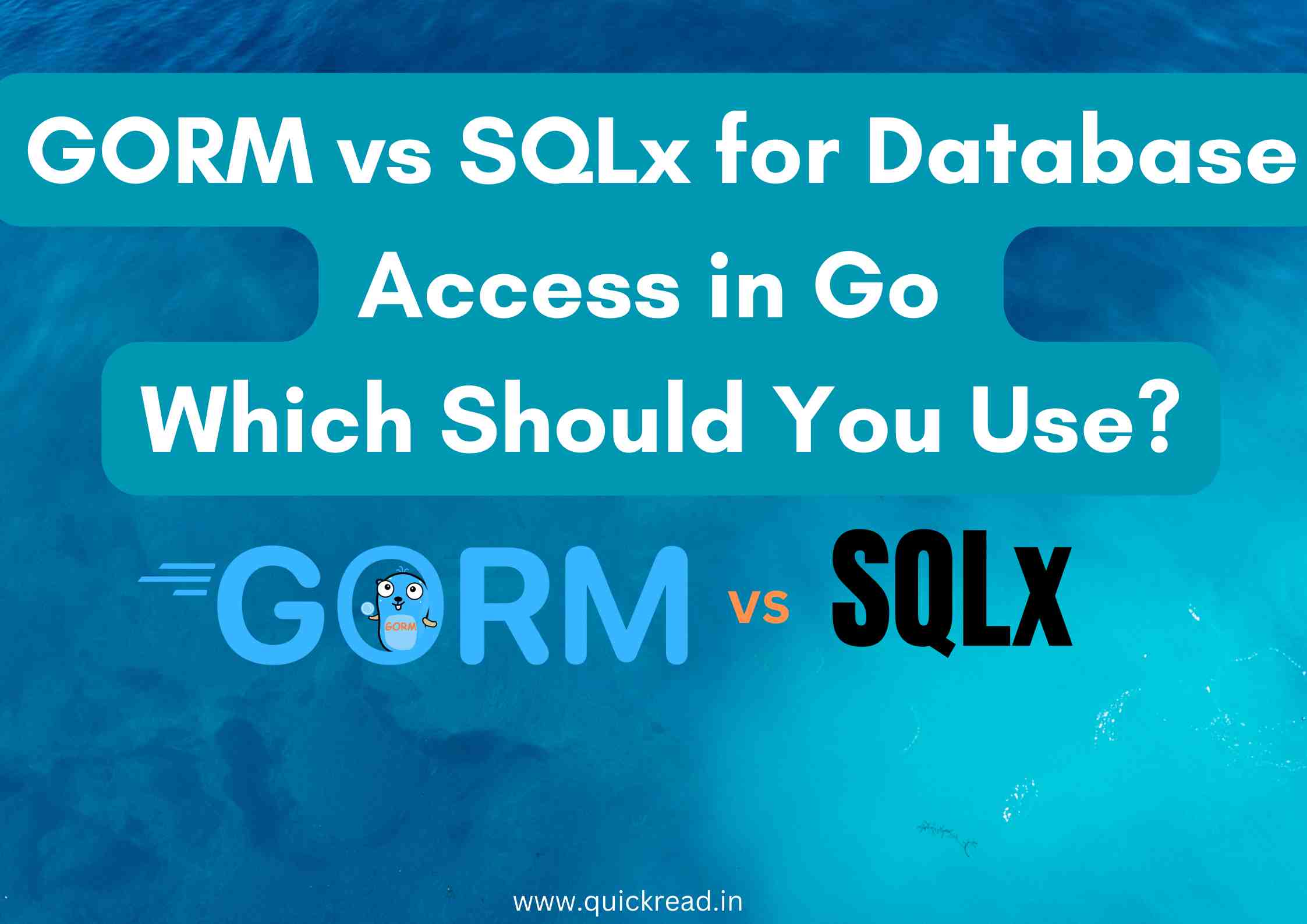Introduction
Interacting with databases is a key part of most Go web applications. Two popular options for database access in Go are GORM and SQLx. In this comprehensive guide, we’ll compare GORM vs SQLx to understand their differences and help you pick the right library.
Overview GORM vs SQLx
GORM and SQLx have some similarities but also differ in their approaches:
- GORM is an ORM (Object Relational Mapper) that allows querying databases using Go structs and objects instead of SQL.
- SQLx is a database library that provides extensions to the standard database/sql package. It makes it easier to marshal rows into structs but still uses normal SQL for queries.
Below we’ll explore their features and use cases in more depth.
GORM
GORM lets you write queries using model structs rather than SQL:
// Fetch user by ID
user := new(User)
db.First(user, 10)
// Find all active users
var users []User
db.Where("active = ?", true).Find(&users)The ORM translates operations to corresponding SQL queries.
SQLx
With SQLx, you need to write regular SQL queries and strings:
// Find active users
var users []User
db.Select(&users, "SELECT * FROM users WHERE active=?", true)So SQLx requires more SQL knowledge, but provides full query flexibility.
Schema Definition
GORM
GORM can auto-migrate your schema based on model structs:
type User struct {
ID uint
Name string
Active bool
}
// Auto-migrate
db.AutoMigrate(&User{})This provides automated and declarative schema management.
SQLx
SQLx requires writing SQL schemas and migrations yourself:
-- Manually write SQL
CREATE TABLE users (
id INT,
name VARCHAR(50),
active BOOLEAN
)So SQLx needs more effort for migrations but allows finer control.
Data Mapping
GORM
GORM automatically marshals rows into model structs:
type User struct {
Name string
Age int
}
var user User
db.First(&user) // Automatically mappedLess code needed for serialization.
SQLx
You need to manually scan rows into structs with SQLx:
user := User{}
err := db.Get(&user, "SELECT * FROM users WHERE id=?", id)
if err != nil {
// scan failed
}More code but full control over mapping logic.
Associations and Relationships
GORM
GORM makes it easy to declare model associations and relations:
type User struct {
gorm.Model
Name string
// Associations
CreditCards []CreditCard
Payments []Payment
}
// Allows:
user.CreditCards
user.PaymentsQueries across relationships are simple and intuitive.
SQLx
SQLx has no special support for associations. Related data must be queried and mapped separately:
user := User{}
db.Get(&user, "SELECT * FROM users WHERE id=?", id)
var cards []CreditCard
db.Select(&cards, "SELECT * FROM cards WHERE user_id=?", user.ID)
// Manually relate
user.Cards = cardsMore work needed but full control over the logic.
Overall Comparison
GORM Pros
- Simple declarative querying via structs
- Automated schema migration
- Built-in ORM associations
- Less code for common tasks
SQLx Pros
- Support for raw SQL queries
- Fine-grained control over schema and mapping
- No ORM, closer to the metal
- Lightweight and simple
When to use GORM
If you want higher productivity and don’t need low-level database access, GORM provides simpler abstractions for common tasks.
When to use SQLx
If you need flexibility of raw SQL and want closer database control, SQLx allows more fine-grained queries and management.
Frequently Asked Questions
- What is the main difference between GORM and SQLx?
The key difference is that GORM is an ORM that allows querying using Go structs instead of SQL. SQLx requires writing raw SQL queries while providing conveniences for mapping results to structs.
- When is it better to use GORM vs SQLx?
Use GORM if you want higher productivity and don’t need low-level database access. Choose SQLx when you need more control over your queries and closer database interaction.
- Does GORM support writing raw SQL queries?
Yes, GORM does allow executing raw SQL queries directly when needed, in addition to its ORM-based querying capabilities.
- Does SQLx have any support for associations or relationships?
No, SQLx has no direct support for associations or relationships between models. These have to be handled manually.
- Is one faster than the other?
Both GORM and SQLx have negligible performance difference for most use cases. Raw SQL may have a slight edge in edge cases but premature optimization should be avoided.
Conclusion
- GORM is an ORM that provides higher-level abstractions like querying via structs and automated schema mapping.
- SQLx allows executing raw SQL queries and manually mapping results to structs.
- GORM improves productivity for common tasks while SQLx offers closer database control.
Consider the tradeoffs and choose the right approach based on your application’s specific needs. Both GORM and SQLx are excellent choices depending on the use case.


